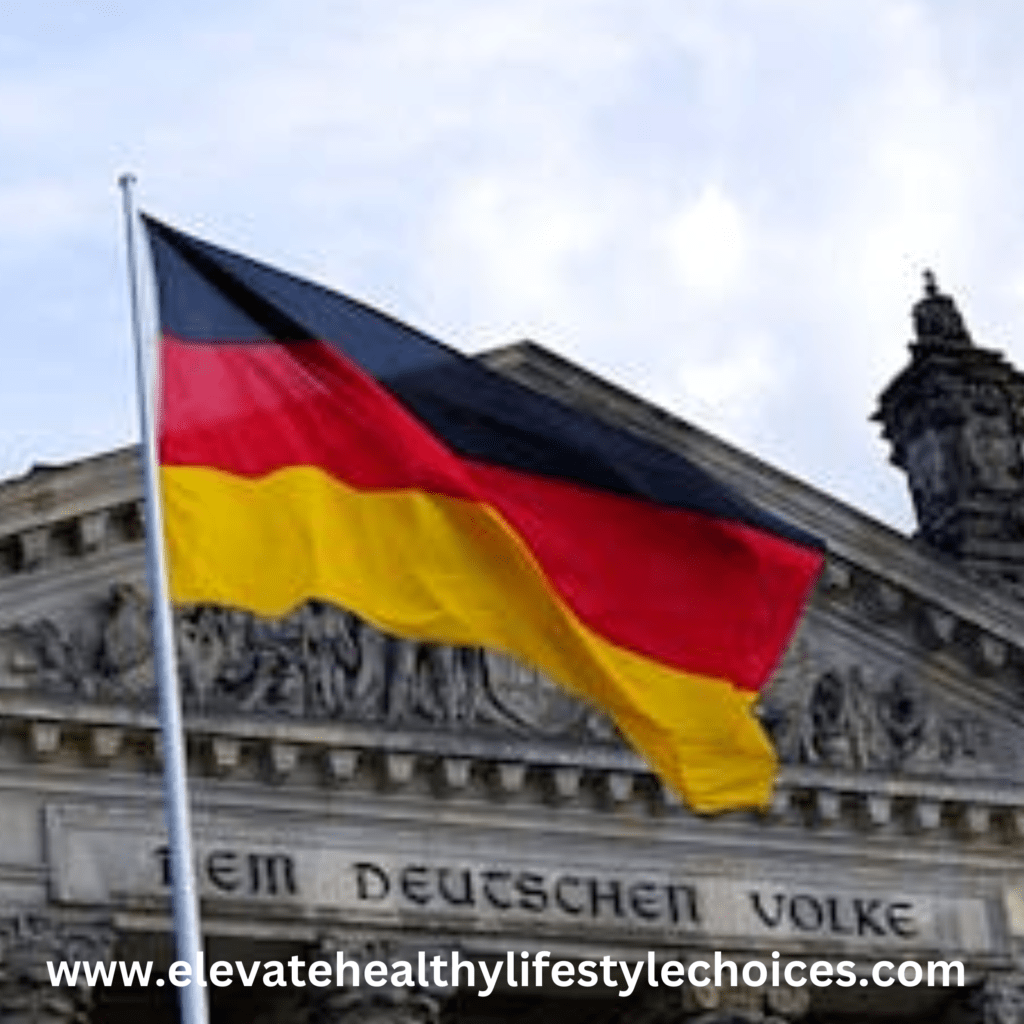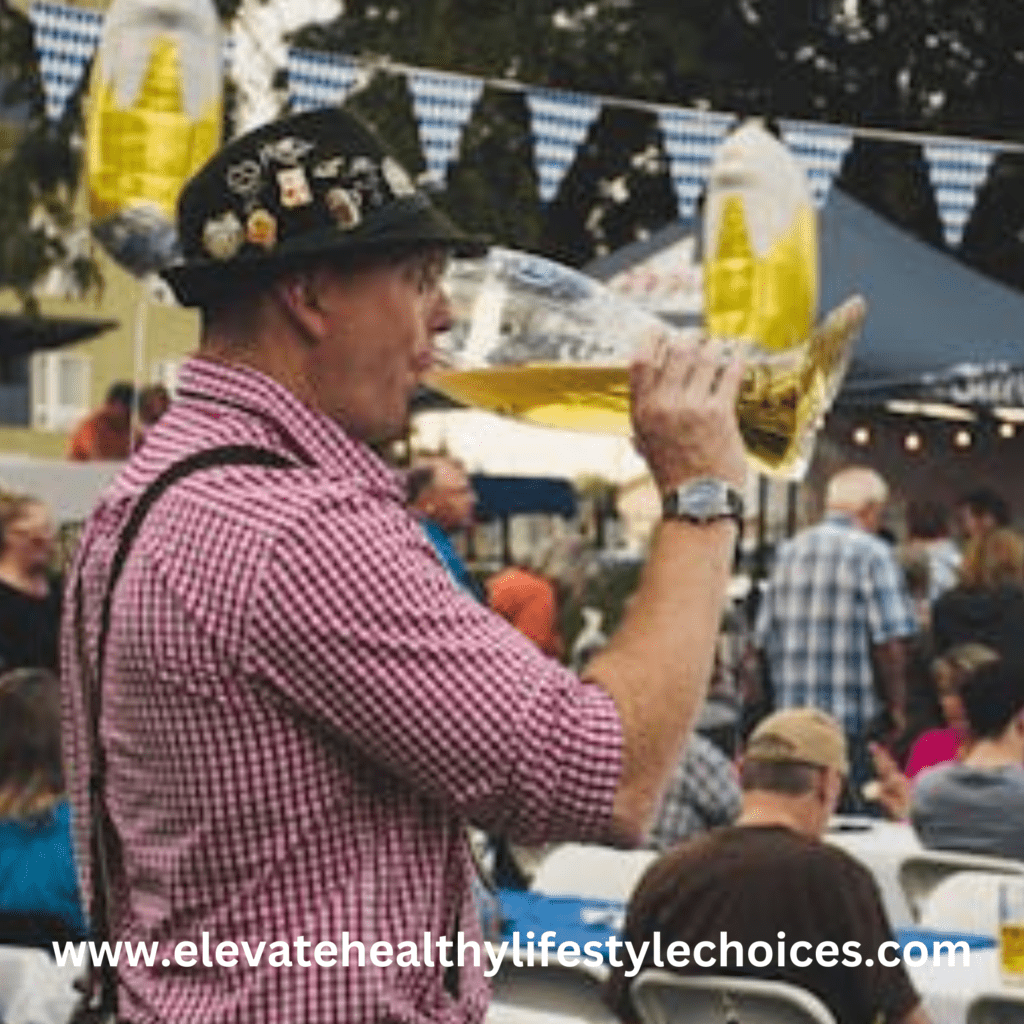
Germany has a reputation for their quality cars, beers, and fast motorways, but did you know that Germany also places a strong cultural importance on hobbies? Let´s explore some of German´s interesting hobbies, many steeped in centuries-old traditions.
How Hobbies Reflect German Culture and Societal Values
The German culture boasts quality, critical thinking, precision, efficiency, eco-friendly practices, and a solid work ethic. Many popular German hobbies stem from centuries-old culture and traditions passed down through generations.
Benefits of German Hobbies in Society;
- preservation of cultural heritage,
- community building and social solidarity (social clubs),
- promote well-being and personal fulfillment,
- an avenue for learning (educational, skill development)
- cultural identity and expression,
- promote a healthy work-life balance.
Germany´s #1 Sports Club: Soccer Fever
Germany like many of its European counterparts, places a significant emphasis on healthy living. Healthy meals and exercise are the norm. The government has many programs to ensure everyone has access to them. Soccer is the most popular sport not only in Germany but throughout Europe.
Germany has many soccer sports clubs professional (Bundesliga) and local (amateur). The German Football Association is one of the biggest clubs nationwide. It´s no surprise that this 4-time World Cup winner (4-time 2nd place, and 4-time 3rd place World Cup winners) and 3-time European championship winner (3-time 2nd place, and 3-time 3rd place European Championship winners) has over 30,000 member clubs throughout its 16 States.
Local clubs are more affordable, and the prices range from club to club. It depends on the type of club, age, discount qualifications, etc.

Cycling Environment-Friendly
Many Germans cycle to work and for recreational purposes. Some enjoy cycling tours with family and friends. However, The Netherlands (bicycles outnumber people, typically, many citizens have more than one bike for different occasions) and Denmark (prides on many bike bridges exclusively for bikes and pedestrians, especially in bigger cities) are notorious for more cyclists than Germany.
Nevertheless, cycling is a national pastime. There are numerous cycling events, clubs, and beautiful cycling trails. There are also government incentives for promoting cycling. Some scenic cycling excursions include the Berlin Wall trail, the Baltic Sea Cycle Route, the Harz Mountains Cycle Route, and the Bavarian Beer and Bike Tour.
Community Gardens and Their Role in Social Integration (Gardening-Schrebegärten)
Germany is setting trends in eco-friendly gardening practices, and many Germans enjoy decorating their homes, apartments, and communities with vibrant, lush gardens.
Schrebergärten are garden colonies found throughout Germany. They are usually small plots of land on the outskirts of cities. Schrebergärtens provides urban residents an escape from the crowded, polluted cities.
Many are private areas where individuals and families cultivate fruits, vegetables, flowers, and herbs. Most have a generous plot of land with a small house (equivalent to a medium-sized or big shed).
There are rules to adhere to by local garden associations (governing bodies). Plot maintenance, gardening practices, construction guidelines for garden structures, and membership obligations follow strict regulations.
Germany´s garden colonies (Schrebergärten) help promote sustainable and environment-friendly living practices.
Prioritizing Organic Gardening Policies
Most Germans value organic gardening, using natural and sustainable approaches to maintain healthy soil, pest control, and plant nutrition. Many people frown upon synthetic pesticides and fertilizers and opt for composting (Biomüll) crop rotation and organic soil amendments.
Permaculture plays a vital role in gardening in Germany. The practice of self-sustaining ecosystems that mimic natural patterns and cycles, like diverse plantings, rainwater harvesting (rain barrels/cisterns), and habitat creation encourages biodiversity and resilience.
Reducing water usage through rain barrels or cisterns creates a habitat for pollinators. No dig gardening-lasagna gardening methods are becoming more popular. This method involves layering organic materials (compost), straw, mulch, and leaves directly onto the soil surface to provide a nutrient-rich growing environment, thereby minimizing soil disturbance and over-seeding with drought-tolerant grass species, using organic fertilizers and weed control methods.
Eco-friendly garden practices in Germany reflect the broader commitment to a sustainable living environment, stewardship, and promoting harmony with nature.
Shooting Clubs (Schützenvereine)
Shooting Clubs have a longstanding tradition. It was founded in 1861. They showcase target shooting competitions, marksmanship training (rifles, pistols, shotguns, and archery), and social events like traditional festivals or fairs centered around shooting sports.
Shooting clubs are more prevalent in small towns. It is interesting to note that Germany has one of the strictest gun laws in the world, and members have to adhere to the strict laws of gun ownership.
Beer Brewing Germany´s Best
Beer Brewing has a high value in German culture. Most Germans follow the Beer Purity Law (Reinheitsschutbot) established in 1516. The Beer Purity Law is one of the oldest food regulations still in effect. It allows only water, barley, and hops (yeast introduced years later), ensuring the quality and purity of German beers.
There is no room for artificial additives or preservatives, giving German beer its optimal flavors and aroma. German beers have a harmonious balance of malt sweetness, hop bitterness, and yeast character. Some of the best German beers are Bitburger, Franziskaner, Krombacker, Erdinger, and Paulaner, to name just a few.
Oktoberfest, Germany´s Most Famous Festival

Beer and Oktoberfest go hand in hand, so it is only natural to briefly mention the festival that allures millions of visitors to Germany, especially Bavaria, each year. But don´t let the name fool you; Oktoberfest actually begins in late September into early October. The fest can last up to 17 days or longer, so it is best to check specific times. The beer tents are unforgettable. On average, visitors drink around 7 million liters of beer during this time.
Hiking (Wandern)
Hiking is a well-beloved hobby for many Germans. Most Europeans relish fresh air and can easily spend hours on a hiking trail. Rain or shine, the bad weather does not deter people from hiking; they dress accordingly.
Some incredible hiking trails include the Rheinsteig Trail which has stunning river views and exquisite landscapes, in Rhineland and Hesse (Hessen). The Rennsteig Trail is one of Germany´s oldest trails, curtailing the edge of the Thurigian Forest. Another popular scenic trail is the Harzer-Hexen-Stieg in Lower Saxony (Niedersachsen) and Saxony-Anhalt (Sachsen-Anhalt). The Bavarian Alps Traverse offers breathtaking views, including crystal-clear lakes like Konigssee in Southern Germany.
Mushroom Hunting
Mushroom foraging is becoming even more popular in Germany. Most people can´t wait for the season to start, usually between summer and autumn. Forests and woodlands are the popular choices for the search for edible mushrooms. But please be aware that not all mushrooms are safe to eat; several types are poisonous and can even cause death.
Some popular mushrooms in Germany are porcini (Steinpilz) and chanterelles (Pfifferlinge). Places like Hamburg, Berlin, Bavaria, and Thuringia are well-known for mushroom hunting.
Classical Music Fascination
Classical music is an integral part of German heritage. Germany has a long, vibrant history in classical music with famous composers like Sebastian Bach (Thuringia) and Ludwig Van Beethoven (North-Rhine-Westphalia).
Today, German schools offer comprehensive classical music programs in education and training. Music lovers can enjoy musical excellence at concerts and festivals in cities like Berlin, Munich, Hamburg, and Leipzig, which are the most notorious for such occasions.
There are many other popular hobbies in Germany, such as woodworking and carving, photography, pottery and ceramic art, theater, and textile crafts(knitting/sewing).
FAQ
1) How passionate are Germans about hobbies?
Answer: Many Europeans view hobbies as vital for work-life balance, and Germany is no exception. Germany has a rich cultural heritage and a strong foundation of craftsmanship (woodworking, brewing, or gardening). Germany, like their European neighbors, values hobbies that promote physical activities and outdoor pursuits such as sports, hiking, cycling, and skiing.
2) What are some eco-friendly habits for gardening in Germany?
Answer: Germans use many eco-friendly practices including, but not limited to:
Water Conservation: use of rain barrels/cisterns to collect rainwater and water plants and for drip irrigation systems to minimize water waste.
Native Plants: use of local plants that require less water and maintenance.
Organic Pest Control: use of natural methods-companion planting and use of beneficial insects to control garden pests (ladybugs, wasps, etc) instead of chemical pesticides.
Mulching: application of organic mulch (straw, wood chips) to retain soil moisture, suppress weeds, and improve soil health in place of synthetic fertilizers.
3) What makes German beer so exceptional?
Answer: German beer´s exceptional tastes come from centuries-old brewing traditions, adherence to the Reinheitsgebot Purity Law, and meticulous craftmanship due to a diverse range of high-quality brews. With a keen focus on quality ingredients, regional specialties, and consistency, it is no wonder that Germany enjoys an exceptional beer reputation.
4) What resources are available for tourists who want to engage in popular German hobbies?
Answer: Tourists can get specific information about popular hobbies in the area at any local tourism office or center, especially at train/bus stations. Online resources are available through forums (Toytown Germany/Inter Nations) or local community websites in Germany.
You may also like:
10 Relaxing & Safe Hobbies to Enjoy During Pregnancy | Elevate Healthy Lifestyle Choices
The Ugly Side Effects of Stress and What You Can Do About It | Elevate Healthy Lifestyle Choices
How Can You Make Your Skin Glow? | Elevate Healthy Lifestyle Choices
